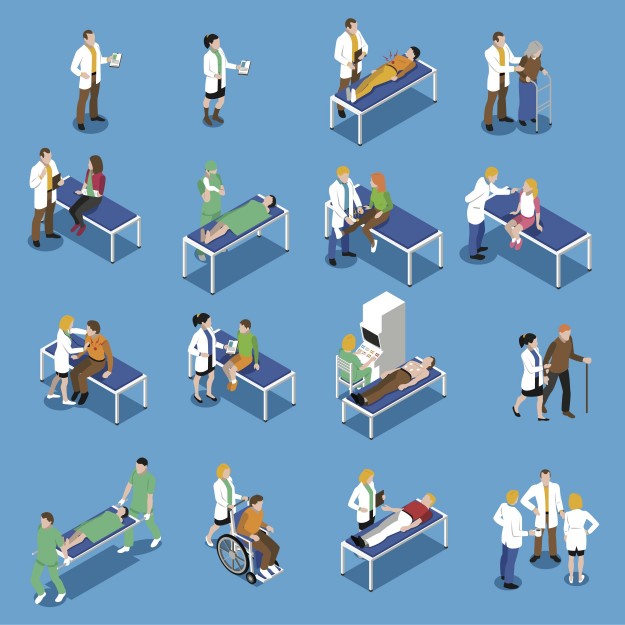Countries worldwide are facing unprecedented challenges related to health and health care. This is made worse by a global shortage of 17.4 million qualified health care workers (2.6 million doctors and more than 9 million nurses), according to the World Health Organization.
Half of all hospitals are operating with personnel deficits today. If current trends continue, the global shortage of health care workers is projected to exceed 14 million in 2030.
Health systems everywhere are looking to recruit and develop nurses as a sound solution for bridging these staffing deficits—while also enhancing quality and safety, reducing costs and relieving physicians to perform the most complex care. However, as we all know, nothing is easy in health care.
As we previously discussed, many students outside the West don’t have local opportunities to obtain advanced degrees in nursing, and nurses from developing countries are often drawn to more lucrative work in other parts of the world.
The nursing profession also still needs to overcome some long-held limitations.
Thanks to centuries of imbalanced professional power relations and a rigid gender-based division of labor, most nurses around the world are women, and in some regions, nursing still carries a lower status than being a physician. Health systems around the world are ignoring rich pools of talent, and many aren’t leveraging nurses’ clinical training, limiting them to tasks such as monitoring and recording vital signs.
Overcoming these obstacles and investing in nurses will be effective for meeting the growing needs for quality health care around the world. Among health professionals, nurses typically spend the most time with the patient, which means they’re often quicker to spot changes in the patient’s status. They can observe a patient’s mood and level of comfort, interact more, and become familiar with the patient’s family and lifestyle—all of which can affect recovery.
Additionally, as health care systems look for ways to deliver better care to more patients at lower costs, nurses are taking over many of the responsibilities that have traditionally belonged to physicians, such as administering routine tests, providing nutritional counseling and answering patients’ questions.
The patient experience is highly influenced by the quality of nursing care. As we continue to move full speed into the era of patient-centered medicine, the ability of nurses to affect the perceived quality—and value—of care is becoming more significant.
Key Players
At Johns Hopkins Medicine International, we have found again and again that nursing is a linchpin to health care success. As we work with collaborators around the world to create sustainable health care systems, we ask: How can a global approach to nursing improve health? What common obstacles do nurses face? How can we work together to overcome them?
To address these questions, we’ve established a range of programs that involve conventional clinical training, but also leadership development, the introduction of new nursing roles, and ample mentoring and networking opportunities with colleagues within and across borders.
We have connected Johns Hopkins nurse leaders to provide training that helped our affiliate Fundación Santa Fe de Bogotá in Colombia to develop a department of nursing, create a nursing practice model and establish a chief nursing officer position.
We have also held nurse leadership development sessions for more than 300 nurses from nine countries to build skills ranging from budgeting to communication.
Using Johns Hopkins as a model, we worked with Johns Hopkins Aramco Healthcare (JHAH) to introduce new nursing roles, including as instructors, team leaders, discharge planners and home care nurses. JHAH also has added positions—such as case management—that were new not only to JHAH, but to Saudi Arabia in general.
We always work closely with our global affiliates to ensure effective nurse leadership is in place. When we began working with Anadolu Medical Center in Turkey, the very first new employee we helped place in the project was the vice president of nursing. At JHAH, we filled the very important chief nursing officer with one of our own, Zeina Khouri-Stevens, who was Johns Hopkins Bayview’s director of nursing for inpatient surgery and neurosciences.
Today, we can point to many successful nurses and nurse leaders at our affiliates who are widely respected and admired in their role. Their empowerment encourages even more talented women and men to enter the field, determined to reach their full potential as an integral part of the clinical care team.

Thank you for sharing a lot we learnt and relearn.
Best regards
Prof Zahrah Saad
Dean
Faculty of Nursing and Midwifery
Mahsa University
Kuala Lumpur
Malaysia
Hi,
Nice to hear the good work you are doing and spear heading in advancing the nursing leadership and career. i want to know if you have given a thought to Sub Saharan Africa ( East , and West Africa) . there is a huge need to develop the nursing leadership, nursing training and care in this part of the world. the recent Ebola outbreak is an eye opener of how small our "world " is getting and infection knows no boundaries . Just a thought .